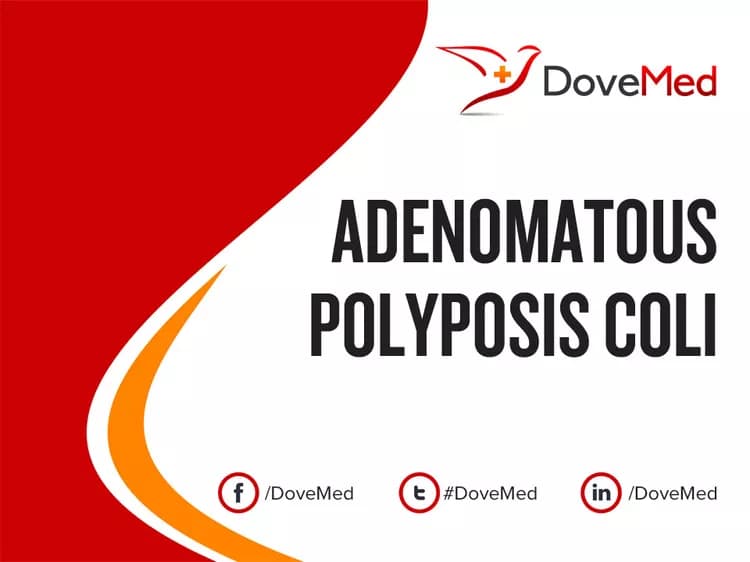The topic Adenomatous Polyposis Coli you are seeking is a synonym, or alternative name, or is closely related to the medical condition Familial Adenomatous Polyposis Syndrome.
Quick Summary:
- Familial Adenomatous Polyposis Syndrome is a genetic disorder that increases an individual’s chance of developing colon cancer
- There are two types of Familial Adenomatous Polyposis Syndrome: Classical Familial Adenomatous Polyposis Syndrome and Attenuated Familial Adenomatous Polyposis Syndrome
- With Classical Familial Adenomatous Polyposis Syndrome, colon polyps usually occur in adolescents
- Most of the polyps that develop are adenomatous polyps, which increase the chance of developing colon cancer
- These adenomatous polyps are initially benign (harmless), but can become malignant (cancerous) if not treated
- On an average, an individual with Familial Adenomatous Polyposis Syndrome develops colon cancer by age 39. Such individuals also develop a tumor of fibrous tissue called a desmoid tumor
- The incidence of Familial Adenomatous Polyposis Syndrome varies according to different studies. Some studies estimate the incidence to be 1 per 1000, whereas others estimate the incidence to be 1 per 22000
- A variant of Familial Adenomatous Polyposis Syndrome can occur in an autosomal recessive type mutation inheritance. Individuals with Autosomal Recessive Familial Adenomatous Polyposis Syndrome have fewer colon polyps compared to individuals with Classical Familial Adenomatous Polyposis Syndrome
- The genetic abnormalities that are usually seen in the classical type are not seen in the autosomal recessive type of Familial Adenomatous Polyposis Syndrome
- Familial Adenomatous Polyposis Syndrome is caused by a mutation in a gene called APC.
- The majority of individuals do not exhibit signs or symptoms until they develop colon cancer
- A family history and genetic testing is usually used to detect a mutation in the APC gene and diagnose Familial Adenomatous Polyposis Syndrome
- The possible complications of Familial Adenomatous Polyposis Syndrome are the development of colon cancer in the polyps
- The treatment of Familial Adenomatous Polyposis Syndrome usually includes the prophylactic removal of colon (prophylactic colectomy). Since Familial Adenomatous Polyposis Syndrome is a genetic disorder, there are currently no methods to prevent it
Please find comprehensive information on Familial Adenomatous Polyposis Syndrome regarding definition, distribution, risk factors, causes, signs & symptoms, diagnosis, complications, treatment, prevention, prognosis, and additional useful information HERE.
Related Articles
Test Your Knowledge
Asked by users
Related Centers
Related Specialties
Related Physicians
Related Procedures
Related Resources
Join DoveHubs
and connect with fellow professionals


0 Comments
Please log in to post a comment.